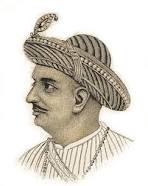Jan 2: A year after 12,000 acres of forests in Bandipur went up in smoke, the Karnataka Forest Department is gearing up for the summer even as the Forest Survey of India (FSI) has cautioned that 22.78 lakh acres (9,222 sq km) or about 20% of the green cover spread across three districts in the central part of the state is fire-prone.
The FSI studied forest fire incidents across the country between 2004-05 and 2017 before coming up with state-specific inputs.
According to the 13-year observation, Karnataka has 7,352 “fire points” or areas measuring 5 km X 5 km with frequent fire incidents.
Though the number is lower compared to states like Maharashtra, Madhya Pradesh and Odisha with over 20,000 points, the sheer spread of the fire-prone area itself is a challenge for the Karnataka Forest Department.
According to data, about three lakh acres (1,199.9 sq km) of forest area is very highly fire prone with 26 to 52 fire incidents in 13 years. This is followed by 7.6 lakh acres (3,067 sq km) of “highly fire prone” areas with an average of one to two incidents every year.
Almost all of the “red alert” areas are concentrated in Uttara Kannada, Chikkmagaluru, Shivamogga and Chamarajanagar districts. As temperature rises at the end of January, so does the risk of forest fires, requiring officials to be on vigil till the end of summer.
After an investigation into the Bandipur blaze revealed that faulty fire lines and poor supervision were the reason for the spread of the fire, the department has come up with a multi-pronged approach to prevent similar incidents this year.
“After the Bandipur incident, we have created a fire cell and a standard operating procedure (SOP) which everyone has to follow. Firstly, a fire management plan is prepared and approved by a competent authority.
The SOP has well defined firelines which have to be executed by December-end and burning must be completed by January 15,” Principal Chief Conservator of Forests (Head of Forest Force) Punati Sridhar told DH.
He said that to ensure its strict implementation, GPS readings of firelines are to be submitted for random verification.
“All the required equipment from fire jackets to shoes, gloves, backpack sprayers and tractors mounted with 2,000-5,000 litre tanks with high pressure pumps will be deployed at vantage points,” he said.
In addition, the department’s fire cell works in collaboration with the Karnataka State Remote Sensing Applications Centre (KSRSAC) to give fire alerts within half and hour of an area catching fire and detected by satellites.
“Earlier, the gap used to be four hours by when the fire would have spread beyond control. Now, with reduced time gap, it would be easier to control fire early,” he added.
 Koppala, Jan 27: A miscreant has been arrested by the police in Koppala town of Karnataka for posting derogatory comments on Tipu Sultan on social media.
Koppala, Jan 27: A miscreant has been arrested by the police in Koppala town of Karnataka for posting derogatory comments on Tipu Sultan on social media.




Comments
Mr. Manohar Mangalore.
If someone publish your grand father's photo and write against his character and entire your untrue family matter... you will say the same comments???
Add new comment